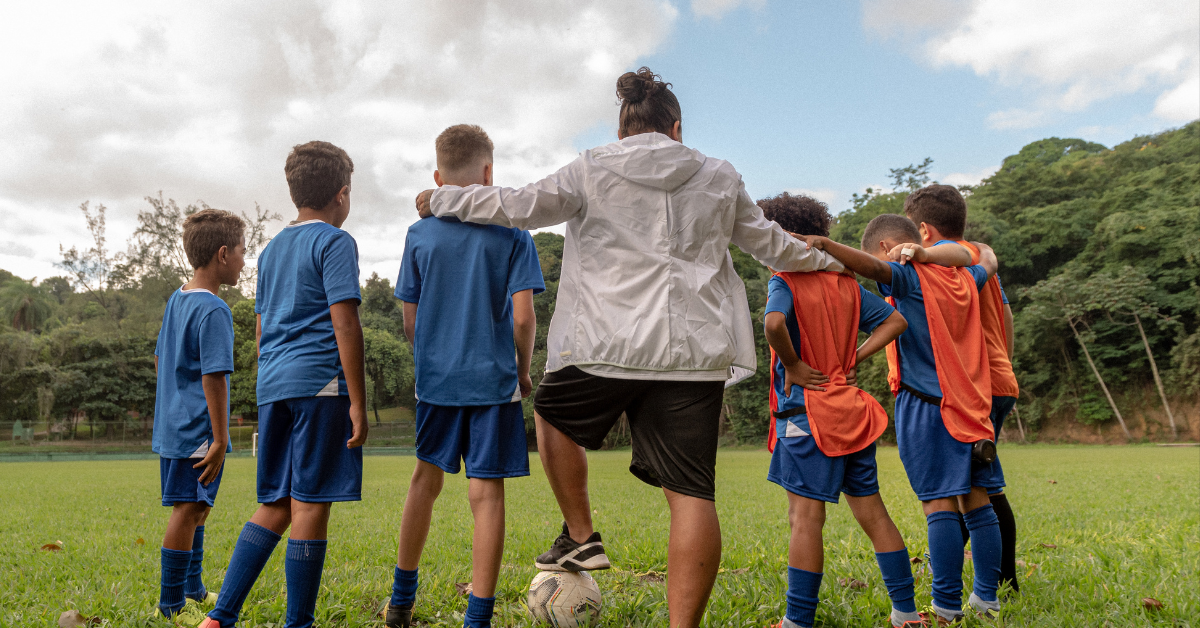
Mental Toughness Starts With Self-Awareness
- “What did I learn about myself last season?”
- “What challenge do I want to face head-on this summer?”
📊 A study published in the Journal of Applied Sport Psychology found that student-athletes who engage in regular self-reflection report 30% higher resilience and lower burnout during their next season.

Build a Simple Off-Season Routine (and Leave Room for Rest)
Here’s a sample off-season week to get your athletes thinking proactively:
|
Day
|
Focus
|
Time
|
|
Monday
|
Light strength + journal
|
45 min
|
|
Tuesday
|
Skills development + agility work
|
60 min
|
|
Wednesday
|
Active recovery (walk, stretch, yoga)
|
30 min
|
|
Thursday
|
Peer game (pickup, scrimmage)
|
75 min
|
|
Friday
|
Tactical review (watch film/read)
|
30 min
|
|
Saturday
|
Free day (hobby, hike, family)
|
—
|
|
Sunday
|
Goal check-in + visualization
|
40 min
|
Athletes need recovery to prevent burnout — especially teens. Off-seasons should balance structure with flexibility.
Set Goals That Go Beyond the Field
Off-season goal categories:
- 🏋️ Strength: e.g. improve core endurance
- 🏀 Skill: e.g. master 2 new footwork drills
- 🧠 Mindset: e.g. respond to 1 prompt per week in the Hey Coach journal
- 💬 Communication: e.g. text your coach a check-in every Friday
Use Tools That Keep You Grounded, Not Just Busy
With Hey Coach, student-athletes can:
- Get weekly text prompts to reflect on growth
- Share mood and energy check-ins
- Keep a private digital journal with guided entries
- Stay loosely connected to their coach — without pressure
The Hidden Problem with Unstructured Off-Seasons
According to the NFHS High School Athletics Participation Survey, over 7.6 million students play sports annually — but fewer than 30% have any kind of structured off-season plan.
- Re-entry stress at the start of the season
- Poor conditioning
- Increased injuries
- Loss of motivation
The Hidden Problem with Unstructured Off-Seasons
According to the NFHS High School Athletics Participation Survey, over 7.6 million students play sports annually — but fewer than 30% have any kind of structured off-season plan.
- Re-entry stress at the start of the season
- Poor conditioning
- Increased injuries
- Loss of motivation

Less Pressure. More Purpose.
A strong off-season doesn’t mean overtraining. It means building self-leadership, staying mentally engaged, and entering the next season with clarity and confidence.
Ready to Guide Your Athletes Through a Better Summer?
📲 Start using Hey Coach’s off-season journaling and messaging tools today →
Want more ideas on how to support growth year-round?
- The Power of Journaling: How Young Athletes Can Track Growth
- How Coaches Can Strengthen Team Communication
Got more questions? Chat with out AI Assistant now by clicking the chat button on the bottom-right corner of your screen!
Ready to Transform Your Coaching?
Subscribe to our updates
Stay informed with the latest news, special offers, and exclusive content by subscribing to our updates. By subscribing, you consent to receive communications from us through various channels, including email, SMS, and other digital means.
What You’ll Receive:
-
- Newsletters: Monthly updates with the latest news and insights.
- Promotions: Exclusive deals and special offers.
- Event Invitations: Be the first to know about upcoming events and webinars.
- Content Updates: New articles, blog posts, and resources.
Your Privacy:
We respect your privacy and are committed to protecting your personal information. You can read our full privacy policy here. We will never share your data with third parties without your consent.
Manage Your Subscription:
You can update your preferences or unsubscribe at any time by following the instructions in our communications or contacting our support team at contact@heycoach.team.
Thank you for staying connected with us!
Hey Coach Team
